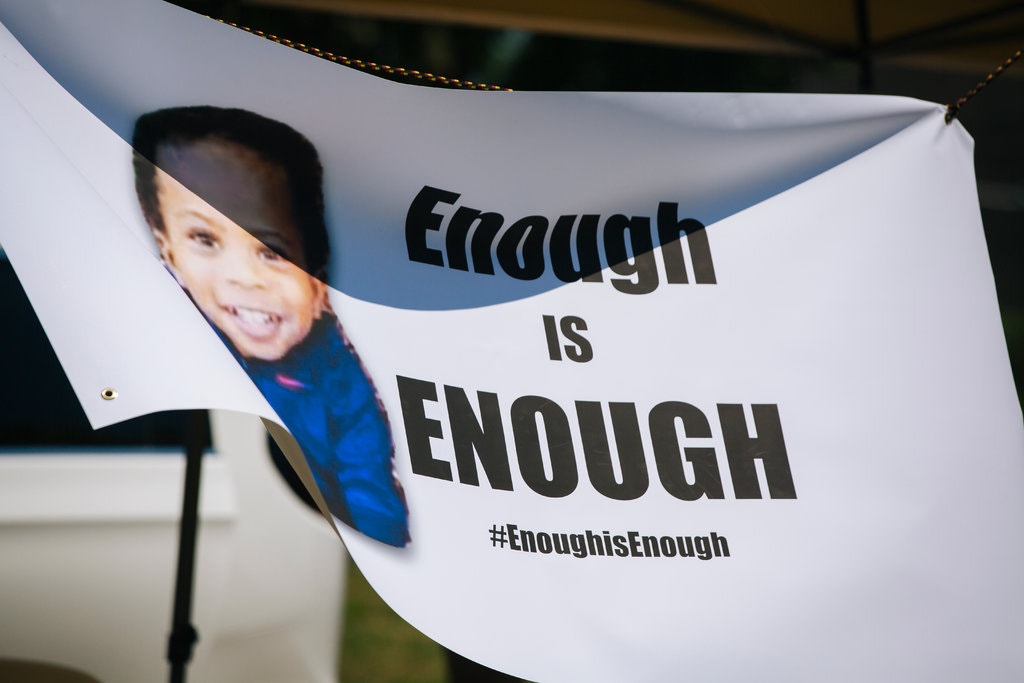
As Yasmin Miller drove home from a laundromat in Chicago’s Englewood neighborhood last weekend, a gunman in another car peppered her red Hyundai sedan with bullets, grazing her head and striking her son, Sincere Gaston, in the chest. Sincere died in his car seat. He was 20 months old.
On June 20, a man fired gunshots through the back of a dark blue SUV, wounding the 27-year-old man driving and hitting his stepson, Mekhi James, in the back, killing him. Mekhi was three.
Two girls, both aged three, were hospitalized with gunshot wounds in separate incidents in recent days — one after her mother thought she heard fireworks and turned around to see her daughter collapsed on the ground.
These were just the toddlers.
In all, nine children under 18 have been killed since June 20 as Chicago reels from another wave of gun violence. The last two were killed on Saturday evening. A 14-year-old boy was shot to death on Chicago’s South Side. A seven-year-old girl was struck in the forehead by a bullet when three gunmen opened fire on a July 4 street party on the city’s West Side, police said.
“The Windy City is becoming the Bloody City,” said the Rev. Michael L. Pfleger of Saint Sabina Church, calling it the worst period in the 45 years he has worked on social issues. “I have never seen the despair, hopelessness and anger all mixed together at the level it is right now.”
The violence comes amid a wrenching debate nationwide about policing in the wake of the death of George Floyd in Minneapolis at the hands of police. Those who defend the police say that the violence shows they need more support, not less, and that it is people living in high-crime areas who most need effective policing. Critics say the violence shows how police are failing the public, how deeply residents distrust officers and the need for reforms and the transfer of funds to address underlying problems, including unemployment, mental illness and drug use.










